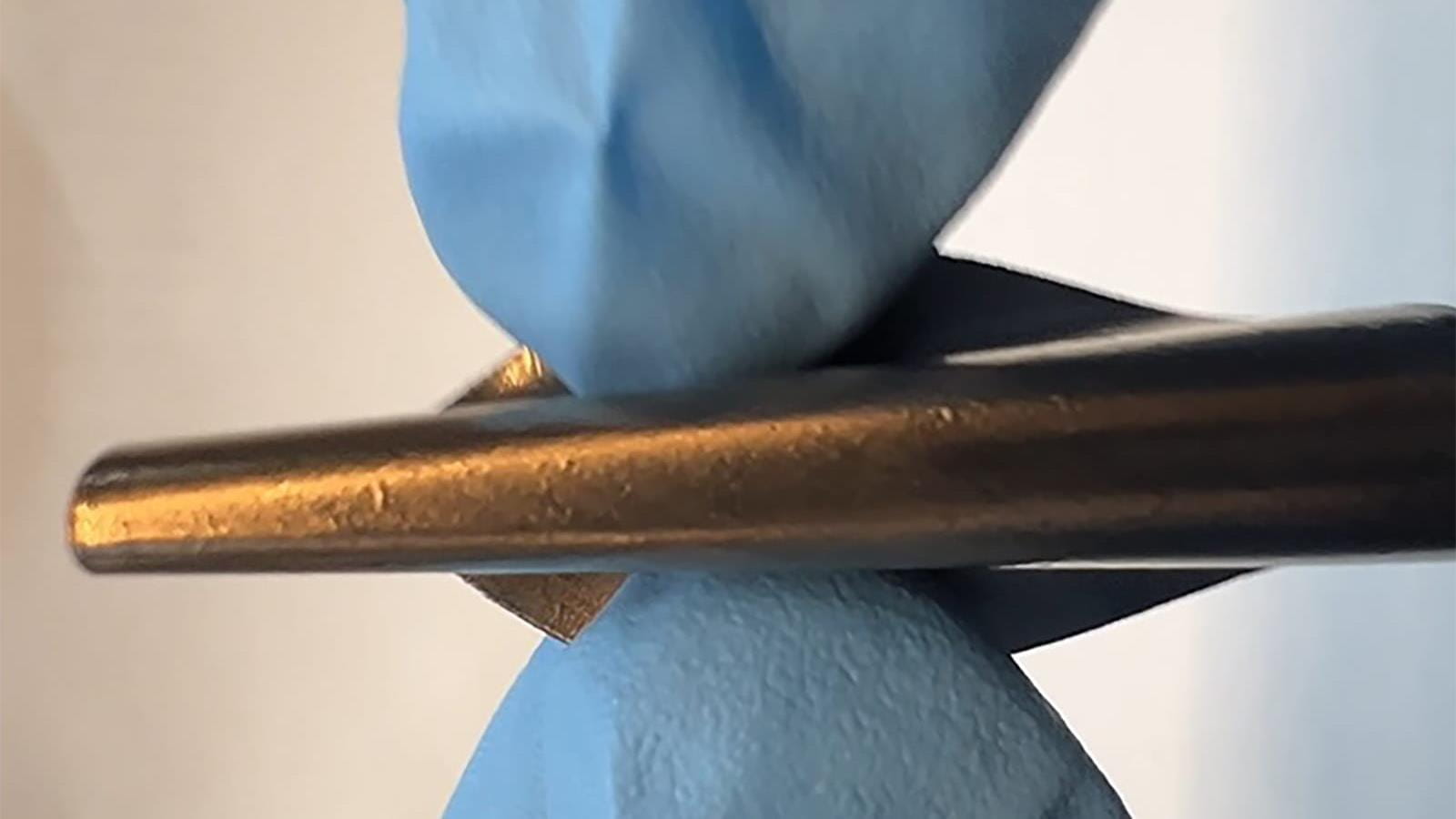This Drexel Student Group Wants to Go on a Field Trip, and You Won't Believe How Far

- MXene Nanomaterials Enter a New Dimension
- A Nanomaterial Flex — MXene Electrodes Help OLED Display Technology Shine, While Bending and Stretching
- Mosquitoes' Bloodsucking Tubes Could Enable High-Definition 3D Printing
- MXene Current Collectors Could Reduce Size, Improve Recyclability of Li-Ion Batteries

In Greek mythology, Icarus was the impulsive son who ignored his father’s warning about flying too close to the sun. But the students in the Drexel University chapter of Icarus Interstellar are much too dedicated to do anything that careless. Besides, they’re aiming for a star located even farther away.
Those students went above and beyond to create the first chapter at any university of Icarus Interstellar, an international nonprofit foundation dedicated to achieving interstellar flight — travel to star systems beyond our own solar system — by the year 2100. The research-oriented organization’s mandate is to train the next generation of interstellar engineers, so the idea of a Drexel chapter organization wasn’t very far-fetched.
Icarus is attempting to build the first-ever mission to Alpha Centauri, the star system located the closest to our solar system. The timing of the project is especially important because no other similar missions are planned and the only mission that could reach a neighboring solar system—the Voyager spacecraft launched into space in 1977—will take tens of thousands of years. Icarus’ Project Tin Tin aims to reach the nearest star in about one-third of the Voyager’s time, even though the Voyager will have received a 40-year head start.
Through Project Tin Tin, Icarus plans to create cost-effective technology and prototype CubeSats, or tiny cube-shaped research spacecraft nanosatellites, to test before sending to Alpha Centauri. The Drexel students will contribute to the mission by designing, analyzing and building their own interstellar CubeSat.
“The idea is that this CubeSat will push the boundaries of what is possible with our current technology and will serve as a stepping-stone for future [faster] missions,” said Damien Turchi, a pre-junior mechanical engineering and mechanics major and the president and founder of Drexel’s Icarus chapter.
The group plans to send Icarus a project proposal by March 2014 to earn approval and start funding for the Drexel CubeSat, which will potentially be launched as early as 2016.
“By promoting specifically student involvement in interstellar research, the breakthroughs required for this endeavor may very well happen in our generation, because innovation tends to lie in the naïve,” Turchi said.
Other activities planned for the Drexel chapter include discussions about Icarus’ projects and the implications of long-term interstellar flight on human health and psychology. The group is also planning a possible trip to the Icarus Interstellar Starship Congress in Texas and is looking into ways to aid other universities to create student chapters.
“The goal of the organization is to show that interstellar travel is changing from the realms of science fiction to science fact,” Turchi said.
Last November, the idea of a Drexel chapter of Icarus seemed out of this world. Turchi first heard of the organization while reading about research presented by NASA engineer Harold “Sonny” White, His research looks at a loophole in physics that would allow the theoretical Alcubierre Warp Drive to be made with a feasible amount of energy so a spacecraft could actually travel faster than the speed of light. The research was presented at the 100 Year Starship Public Symposium, an annual conference dedicated to achieving interstellar travel. Icarus was also involved with the conference, which was how Turchi discovered the organization and realized he wanted to be a part of it.
“I have always been fascinated by the thought of space travel, and as a result my interest was sparked,” he said.
Turchi teamed up with mechanical engineering undergraduate students John Breslin, Michael Daily and Zachary Block, as well as faculty adviser Ajmal Yousuff, an associate professor in the College of Engineering, to create an Interstellar Research Club at Drexel. After more meetings were held and more members joined, the students wrote to Icarus Interstellar in May 2013 to pitch the idea of creating a Drexel chapter of the foundation.
According to Turchi, the international organization’s co-founders were so impressed by the group’s determination and like-minded goals that they agreed. After that, the first university chapter of the organization was created.
“There is no doubt in my mind that Drexel will be the first of many deep space and interstellar exploration research chapters, accumulating the knowledge and expertise which will unlock the solar system and far beyond,” Icarus President Andreas Tziolas wrote in an email announcing the partnership to the Icarus community.
Turchi’s letter contained the signatures of 17 student members. More than four months later, the club counted more than 40 members at a founding event held Sept. 29 to introduce new members to Icarus Interstellar’s mission and Drexel’s chapter. The new chapter is still growing and mostly comprised of mechanical engineering students, though the group is looking for students of all sciences.
“Chemistry, biology and even psychology are necessary components when planning interstellar missions,” Turchi said. “You need someone to make sure people don’t go insane on a spaceship.”
Interested students can contact drexelinterstellar@gmail.com to become a part of Project Tin Tin.
In This Article
Drexel News is produced by
University Marketing and Communications.
